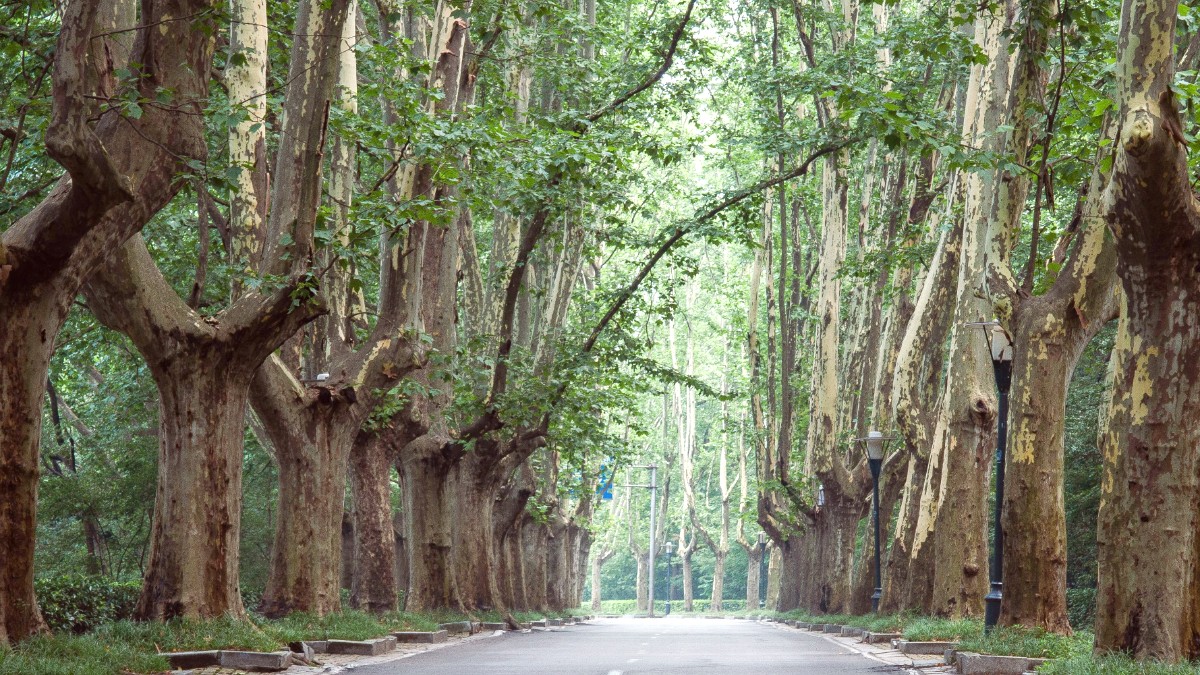
Jiangsu, China
Nanjing has a humid subtropical climate, characterized by four distinct seasons. Each season offers a different experience, making the timing of your visit important for aligning with your preferences and planned activities.
Spring (March-May) brings mild temperatures, typically ranging from 10 to 25°C (50-77°F). Moderate precipitation occurs, but the weather generally remains pleasant. Spring is often considered ideal for sightseeing due to its comfortable conditions. Many flowers bloom, adding beauty to parks and gardens. Autumn (September-November) is frequently considered the most comfortable season for a Nanjing visit. Temperatures are mild and dry, typically between 15-25°C (59-77°F), with clear skies. This season is popular for outdoor activities.
High Season (April-May & September-October) has pleasant weather for outdoor activities, historical sites, and parks. Spring blossoms, autumn foliage. Prices for accommodation and flights see increases. Crowds are larger, especially during national holidays (Labor Day, National Day Golden Week).
Shoulder Season (March & November) has fewer crowds and often slightly lower prices. Weather can still be good, though more unpredictable. Low Season (December-February & June-August) sees significantly fewer tourists, leading to much lower prices. Winter has unique, serene landscapes. Summer offers a good time for indoor attractions and museums. Extreme temperatures (very hot/humid in summer, cold/damp in winter) are typical. Some outdoor activities may be uncomfortable or limited by weather.
Intense heatwaves, high humidity.
Indoor attractions, museums, early morning/late evening excursions.
Strenuous daytime outdoor activity.
Cold, damp, occasional light snow.
Fewer crowds, serene atmosphere, indoor sites.
Dampness makes cold feel more penetrating; pack warm layers.
Spring & Autumn for most activities.
Outdoor sightseeing, hiking, boating on Xuanwu Lake.
Expect higher prices and larger crowds during national holidays.
Most foreign nationals need a visa to enter mainland China. The L Visa is the most common for tourism. Apply for your L Visa at a Chinese Embassy or Consulate General in your home country. Start the application process well in advance of your planned travel dates, typically 1-2 months before, to allow for processing time. The process often includes completing an online application form, scheduling an appointment, and submitting documents in person.
China has visa-free transit policies at certain airports, including Nanjing Lukou International Airport (NKG). 24-hour, 72-hour, and 144-hour visa-free transit eligibility exists for specific countries. This policy typically allows a stay in the transit city or region for a limited time without a visa, given a confirmed onward ticket to a third country or region (not returning to your origin country). Always verify the latest eligibility criteria and rules with the Chinese embassy or consulate.
Valid for 6+ months beyond departure, at least two blank visa pages.
Completed online, printed from embassy/consulate website.
Recent passport-style color photo, meeting specific requirements.
Round-trip flight tickets and confirmed hotel bookings for entire stay.
Detailed travel plan: cities, dates, attractions.
The official currency of China is the Chinese Yuan (CNY), also known as Renminbi (RMB). Both terms refer to the same currency. The international symbol is ¥ or 元.
Major international credit cards (Visa, Mastercard, American Express) generally receive acceptance mainly at high-end hotels, large department stores, and some international restaurant chains. Their acceptance is less common at smaller shops, local eateries, or street stalls.
Cash finds use for very small purchases or in older, traditional markets, but it is becoming less common in daily transactions. Many smaller vendors and local businesses mainly use mobile payment systems.
Note: These figures are estimates and can change based on individual choices, season, and exchange rates. High-speed rail travel between cities, if part of your plan, represents an additional cost not included in the daily estimates.
Prioritizing your health and safety is important for any trip.
No specific vaccinations for entry (unless from yellow fever area). Consult a doctor or travel clinic 4-6 weeks before for recommended vaccinations (Hepatitis A, Typhoid, Routine shots).
Nanjing can experience periods of high air pollution, especially in winter. Consider bringing a N95 or KN95 respirator mask if you have respiratory sensitivities.
Tap water is generally not safe for direct consumption. Drink only bottled water. Ensure food is cooked thoroughly and served hot. Frequent hand washing.
Hospitals in major cities like Nanjing have modern facilities.
Many larger hospitals, like Nanjing Drum Tower Hospital and Jiangsu Provincial People's Hospital, have international wings or departments with English-speaking staff. While offering higher standards of care, these facilities can incur higher costs.
Pharmacies (药店 - yàodiàn) are widely available. Bring any common over-the-counter medications you regularly use. Carry a copy of prescriptions and a doctor's letter for any medications.
Always carry a copy of your passport and visa separately from the originals. A digital copy on your phone is also helpful.
Medical care for foreigners can be expensive. Comprehensive medical coverage World Nomads, SafetyWing, or Insubuy.
Coverage for medical evacuation in case of a serious health issue.
Coverage for trip cancellation/interruption for unforeseen circumstances. Protection for theft or loss of belongings.
Nanjing is a generally safe city with low violent crime rates. Most neighborhoods are safe for visitors.
Keep these numbers readily accessible, ideally written down and stored on your phone. Hotel staff can often assist with contacting authorities.
110
120
119